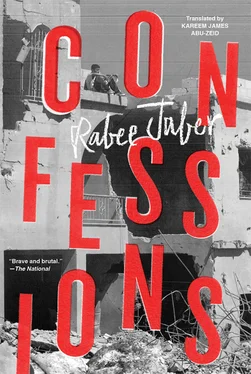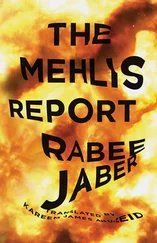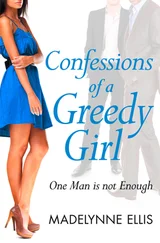I told you I came down with measles once, and once with smallpox. Your temperature rises when you get sick, and because of the high fever your brain starts turning to mush, your mind starts imagining things. Scientists know this, they say Michelangelo was in that state while he was painting the dome of Saint Peter’s Basilica. We have visions when we’re sick, we see things we can’t usually see. I have a memory from my illness: I’m wandering around the house by myself (I don’t know where anyone else is — maybe they’re at the school? maybe they’ve gone to the neighbors’ house? maybe they’re sleeping?), I’m wandering alone among the rooms, looking at the vase on the table, at the tin can on the dresser that Mary puts cookies in, at the clothes that Mary left on the bed, at the rocking chair where Ilya likes to sit when his friends visit; at the plastic covering the window that overlooks sandbags and a dry tree, at the cracked paint on the walls, at the spots where the paint hasn’t cracked yet…. I’m alone in the house, wandering among the rooms as if walking on clouds. I see a doll on the ground and think about picking it up: I imagine myself bending over, but I don’t actually do it because I’m tired and my head is heavy and the heaviness is gathering itself together into beads of sweat on my forehead, and so I continue walking as if something dark were calling me. (Many years later, while my mother was breathing her last on the bed in her room, my father came rushing home: he’d felt mother calling him.)
This is the memory: my cotton pajamas are drenched, they’re clinging to my sick body while I, as if in a dream, walk to the living room and come to a halt in front of my dead brother’s picture. I raise my eyes and stare into his face, considering the features of the face that looks like my own, focusing all the strength in my small head and trying to remember him while he was here, here in this living room where I’m standing, before they kidnapped and killed him.
WHO LIVES behind the demarcation line, in West Beirut? The English teacher answered our question in English: “Beasts and monsters,” he said. I went with Antoine Tannouri — my best friend at the Sacred Hearts School — to the Violet Bookstore by the Hôtel Alexandre and got an English-Arabic dictionary to look up the two words. Who lives behind the demarcation line? Beasts and monsters. Killers and ghosts. Animals and demons. Antoine studied with me at the Nazareth School as well, but we weren’t in the same section there, and we didn’t stay friends. I switched to a new school and, coincidentally, he switched too, and we struck up our friendship again. We used to call Antoine “Bugs Bunny” because of his long ears, and he used to call me an ass and say he wasn’t a rabbit, and then let out that loud laugh of his. He was constantly making fun of himself, and he was quick-witted — whenever he made fun of one of the teachers he always had us doubling over in laughter. He had a sharp mind and always got the highest grades, even though we never saw him study. He wore glasses with a frame made of black bone. His shirts were ironed, and smelled of soap.
We became fast friends at the Sacred Hearts School and continued our friendship at the American University (AUB). After that he moved to America for his graduate studies. Later, he married a woman from Texas and settled there. He has two sons: Robert and Timothy. Antoine (he goes by Anthony now) and I always helped each other out in trying times: we’ve stayed friends and often write each other e-mails, and sometimes he e-mails me pictures as well. Antoine knows my story. The Violet Bookstore I mentioned was burned down during the War of Liberation, or during the War of Elimination, I can’t remember which. A shoe store is there now. Mary’s house isn’t far from the Hôtel Alexandre, and when I visit her I pass the place where the Violet Bookstore used to be and remember those two boys standing in the middle of the magazines and newspapers and notebooks, in the middle of the stationary and the few actual books they had there. I remember how we silently opened the dictionary and looked up the first word our teacher had uttered. We didn’t know what letter it began with: a P or a B? Our teacher didn’t pronounce things clearly.
English was taught as a third language in both the schools I attended. We focused on French and Arabic, and in the higher grades we focused exclusively on French. But during my senior year of high school, and even in my junior year, I’d begun paying more attention to the English lessons.
The war hadn’t ended yet: Julia was thinking about leaving for Canada with her family, Najwa was planning to leave for Australia, and from time to time Mary would say that her husband’s relatives in Venezuela were constantly writing them and inviting them to live in Caracas. Ilya was also thinking of leaving, and when the war reached the heart of East Beirut, he said, “We’ll wait and see,” putting his hand on his right leg, in the middle of his thigh, where he’d been hit by three bullets in the Battle of Bhamdoun (during the Mountain War) — and where a piece of shrapnel was still lodged, next to the bone.
My father was beyond the world back then. He was completely gone. Once, when there was fighting at Sassine Square, one of the soldiers fled into an alleyway behind our house. He was bleeding from his back and his neck, and couldn’t figure out how to put pressure on both wounds with his hands. He dropped his gun so that his hands were free, but he couldn’t block both wounds. Ilya said afterward that father had told him about that. I’d never heard my father tell any stories or provide any details, but Ilya said father had told him, and maybe Ilya embellished the story a bit.
My father was bringing the cages in from the balcony. He was worried about the birds, about the canaries, not because of the gunfire but because of the noise. Gunfire never hit that side of the house when there was fighting. They didn’t fight on that side. There were other periods when the balcony was exposed to shrapnel, but not back then. Ilya says that father saw the soldier from above: sometimes the soldier used both his hands to try to stop the bleeding in his neck, and sometimes he used his hands to stop the bleeding in his back, near his kidney. One hand wasn’t enough. The blood was pouring out of him, and his clothes were soaked black. Our neighbor yelled at him to go to the hospital.
While I was listening to Ilya speak, I remembered the time I went to the demarcation line with Antoine. We slipped out of school and jumped over the fence behind the girls’ playground. We hid our backpacks in a half-wrecked house that had burned down, and went off on our journey. A large part of the road was sunk in shadows because of the tall curtain of dust to the left of us: sniper fire was coming from over there. Antoine had relatives who lived at the end of Lebanon Street, in the Tabaris district. They only used half of the rooms: there were piles of sandbags and drums full of stones in the rooms facing West Beirut.
To this day, my whole body recoils whenever I think about that trip to the demarcation line. We looked ahead of us and tried to make out the features of the burned buildings in the distance, and asked ourselves how they could live over there with all the shattered windows, in buildings riddled with bullets and shrapnel — how did they live in those black buildings? We didn’t know, we couldn’t imagine it, we couldn’t see, as we peered out fearfully from our vantage point in the shade of that cold wall of dust, the sweat soaking our shirts, our hearts beating in our mouths — no, we couldn’t see what was beyond the wrecked buildings: the buildings looked like a range of mountains made of gray concrete and black holes, a chain that rose and fell (the tops of some of the buildings were gone). We couldn’t see beyond those mountains. When I remember that distant day, two images come to mind: the first is the image of those buildings, and in my imagination I saw, behind them, more buildings that looked just like them, all black and wrecked and eaten away by the shelling, rows upon rows of buildings, all of them like that, and all of them with people inside, but we couldn’t see any people from where we were. That’s the first image. The second image: the black corpse of a woman. She wasn’t black. She was white. But most of her body had turned a different color, almost black. Antoine saw her first. We were hiding among the ruins, taking care not to get mud on our shoes, and from time to time we’d bend down to gather some of the (empty) bullet casings…. I said something about the smell before Antoine saw the woman lying there, abandoned among the wrecked wooden boxes of ammo. The stench was awful, and we assumed she came from the other city. (Some of the girls in our class said they’d seen, in their dreams, “those people” sneaking in at night from behind the sandbags, and that they were humans just like everyone else, just like us, except their faces were longer and looked like the faces of dogs, and they had long fingernails, and they kidnapped young children from their families and then screamed and rushed away, leaving no trace but their strange smell.)
Читать дальше












